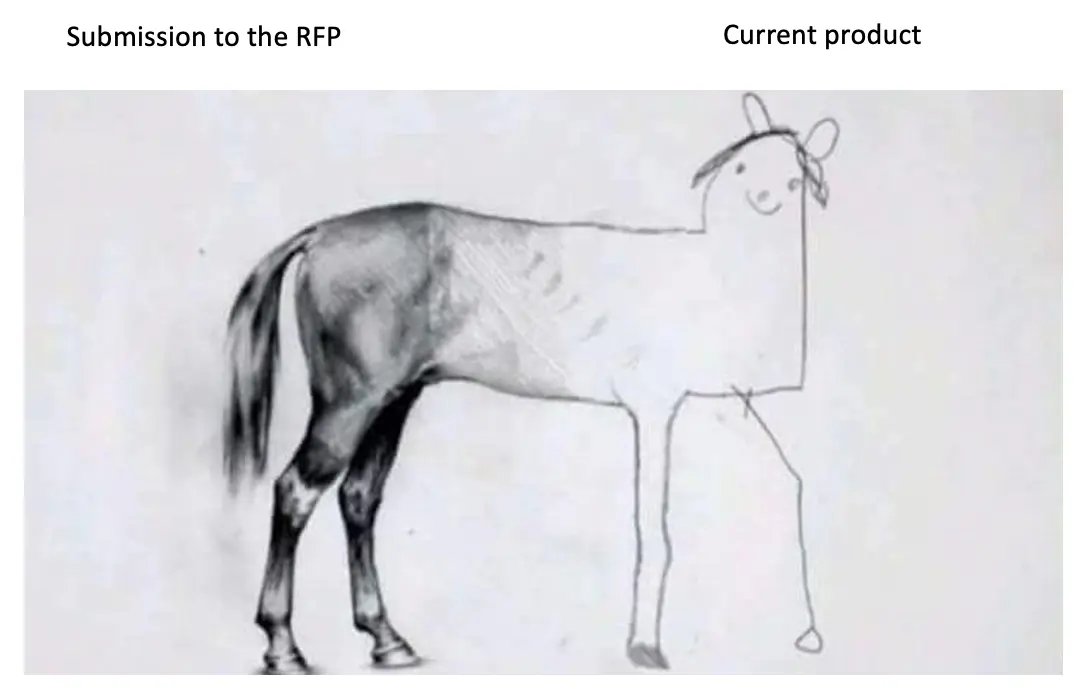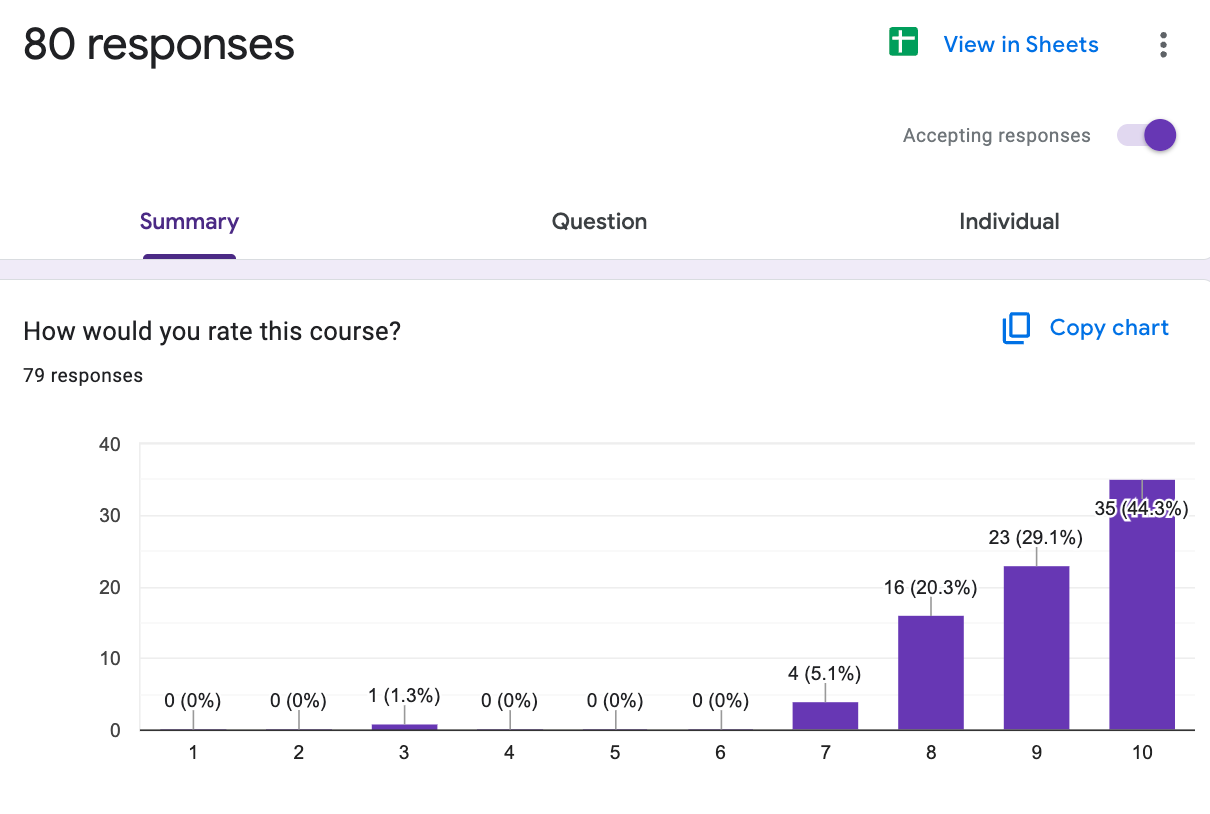Some Thoughts On Startups Overpromising
Get Out-Of-Pocket in your email
Looking to hire the best talent in healthcare? Check out the OOP Talent Collective - where vetted candidates are looking for their next gig. Learn more here or check it out yourself.
 Hire from the Out-Of-Pocket talent collective
Hire from the Out-Of-Pocket talent collectiveIntro to Revenue Cycle Management: Fundamentals for Digital Health

Network Effects: Interoperability 101
.gif)
Featured Jobs
Finance Associate - Spark Advisors
- Spark Advisors helps seniors enroll in Medicare and understand their benefits by monitoring coverage, figuring out the right benefits, and deal with insurance issues. They're hiring a finance associate.
- firsthand is building technology and services to dramatically change the lives of those with serious mental illness who have fallen through the gaps in the safety net. They are hiring a data engineer to build first of its kind infrastructure to empower their peer-led care team.
- J2 Health brings together best in class data and purpose built software to enable healthcare organizations to optimize provider network performance. They're hiring a data scientist.
Looking for a job in health tech? Check out the other awesome healthcare jobs on the job board + give your preferences to get alerted to new postings.
Last time I asked the question “how much is too much when overpromising as a startup” and gave some of my thoughts. It’s a pretty gray area and fluid topic, so I asked for some of your responses. These were some of my favorites.
Request for Proposals - Helpful Or An Obstacle?
“Nikhil - I really appreciated this post. I work for a Series A healthcare tech startup called Rialtic, and we are in the middle of a full RFP cycle with a large health plan.
A few observations and things I've learned from the process so far:
- Winning an RFP as an early-stage business has transformative potential. It's hard to overstate the ways in which successfully delivering for a large customer could catapult us forward as a business. The stakes are high, and the RFP team, which includes every function and every executive at the company, feels that intensity. I see this as an opportunity because it drives attention to detail and quality, but it takes a great deal of stamina to create a comprehensive RFP response while also building the product and the company.
- RFP processes are not going to feel like they were built for newer, smaller organizations. There will be questions like "Does your company have a formal program for XYZ supplier management? If so, describe the results of this process and the accountable executive." Early-stage ventures simply aren’t at that scale yet; my thorniest supplier management problem right now is making sure we don’t run out of cold brew in the office (to which I hold myself personally accountable). Other questions will ask for "Has XYZ occurred within the last 5 years..." without indicating what to do if you haven't existed for that long. These signals are small and are certainly not intended to send a message, but they can add up. I used to work at a big consulting firm, and the RFP process couldn’t feel more different. As a startup, we don’t have the reputational shortcuts of larger organizations. It’s uncomfortable, but it has made me think more deeply throughout the process.
- Significant portions of this RFP ask about functionality that we haven’t built yet but have very real (and very detailed) plans to build by the time of implementation. To maintain transparency and integrity, we used language like "This feature is under development and targeted for Q3 delivery" or "Our roadmap includes Feature X, targeted for early 2023." These responses take a ton of work to get right because this is new, ground-up software development, but I'd recommend this approach to anyone in a similar position. It has allowed us to talk about what we see as differentiating capabilities while being honest that much of the work is ahead of us. We’ll only win if the health plan believes in our vision and trusts our team, so our responses have to reinforce that.

- In the absence of hard proof points at full production scale, we have learned to show whatever we can that differentiates us. Thoughtfulness really pays off here. We don’t disclose the names of our beta customers at this time, so we shared details about our investors to build brand and reputational trust. We are still building the integrations to enable real-time performance visualizations, so we shared a video demo using a standalone UI that we stood up for our sales teams. We haven't experienced a quarterly policy update cycle, so we shared a detailed workflow of our process. If we can bring the vision to life, we increase the chances that we will excite buyers and deepen our relationship with them.
- I'm reminded every time I join a sales call that the market is desperate for new and better solutions. So desperate, in fact, that they are pivoting their traditional risk posture regarding startups and investing in side-by-side comparisons with production data. I see it at Rialtic each day, and I've anecdotally heard it from others in the industry. The way that we, as the healthtech industry, can push this trend forward is by responsibly promising and consistently delivering.
Each startup and each RFP is different, but I can say definitively that independent of outcome, the process has been incredibly instructive for our Product, GTM, Finance, Ops, and Policy teams. I’d encourage any startup in the space to embrace the challenge of a “big” RFP, because you’ll almost certainly benefit from it.”
-Kyle Collins, product at Rialtic
[NK note: I’m in the camp that RFPs across all of healthcare need a complete overhaul. Many of the ones I’ve seen try to cover so many edge cases/functionalities that it’s impossible for any smaller companies to reasonably compete leading to further entrenchment of large companies. Plus a lot of RFPs are companies trying to “guess” what they think the best solution to their problem is - they might not even realize solutions that may look very different.
I’m curious if any of you have thoughts on how to reform the RFP process or RFP processes you went through that you thought were good]
Marketing to investors vs. customers
“First off, loved the article
Two thoughts:
- Startups should do a better job of separating and distinguishing their marketing to investors vs customers. Investors are looking at 5-10 year time horizons vs customers are focused on your solution today.
- I think a rough heuristic would be that you market what you reasonably feel confident you can deliver in the length of your business's sales cycle. Beyond that timeframe, while you may make the sell and unless you manage expectations, it'll likely lead to disappoint and erode trust.”
-Alex Radke [Twitter, Linkedin]
[NK note: The even worse trap here is when you start forgetting that VCs aren’t your customers and you shouldn’t be building for the express purpose of fundraising. Don’t get it twisted, remember the needs of your customer today instead of building to increase your TAM]
It’s not just small companies
“I don't know if you can quantify how much is too much... except of course when patients or providers are harmed.
It's not just startups, however, with this problem in healthcare. Look at the EMR space - the smaller niche players are not overpromising. Their products are geared toward a specific specialty or function. The big guys, on the other hand, are still in an all out war (even if it seems like Epic is running away with it in the US - the global market is incredibly tight).
As an implementation consultant, I was sometimes blown away by some of the timeline and performance promises sales teams made. Not that we couldn't get the EMR implemented, but the expectations set in the contracting phase were just laughable. By the time we were having those conversations of "well the contract said that we would be at or above clean claim rate and revenue capture benchmarks within 2 weeks of scheduled go-live," the sales team was loooong gone and the account exec and implementation teams were left holding that bag.”
[NK note: All love to my sales people, but you pull something like this and you’re liable to catch hands.]

Defining “patient harm”
“I had a few thoughts.
Harm
It makes sense to me that patient harm should be the number one concern here. BUT, I think most instances of overselling (to customers at least; to investors maybe less so) probably involve some degree of patient harm and defining unacceptable patient harm is challenging.
Ex1: Delays in rollout clearly harm patients since they can't benefit from an non-existent product. But that doesn't mean you need to promise a timeline that you have a 100% chance of being able to meet. Or that you should be severely punished for occasionally falling off track.
Ex2: If a company says they use neural networks to find patients that would benefit from using their dieting app, but they actually just look for patients with BMIs above 30 who have seen a doctor recently, is there any patient harm? I don't think so, but that doesn't make me feel great about the situation! If they plan to eventually use a neural network to find the best patients, does that make it more ethical?
Ex3: Say a health system is deciding between two software vendors. Company A truthfully claims to reduce Inpatient Admissions by 10%, and Company B dubiously claims to reduce IP Admissions by 20%, but actually reduces them by 5%. At first glance, Company B is improving patient health if they win the business from the health system! But at the same time, patients are harmed because admissions would have fallen further had Company A been chosen! How often do "overselling situations" resemble this one (and should Company A be overselling?!? This would lead to the best outcome)? I'm not sure, but I'd guess pretty often.
Ass Bites
To your point about oversellers getting ass-bitten, would Company B have been "found out" in the above scenario? If they promised a 20% reduction in admissions and only achieved a 5% reduction across the health system, they'd probably be in trouble. The number of total admissions is a hard one to fudge.
[NK note: Got it, ass bites bad if fudging. 🥴
The fact that we don’t have a way to penalize companies for making type II errors/errors of omission is a big problem in healthcare. A rule or process that picks the worse option basically never gets addressed because the counterfactual is hard to prove. The above is one example. Any process that prevents highly effective solutions from coming to market should theoretically be just as bad as processes that accidentally bring shitty solutions to market, but it’s harder to blame someone for the former.
But what if they promise a 20% reduction in admissions on the group of patients their product will interact with? Say Company B sends home health aides to patients who have recently been admitted to the hospital for diabetes-related issues. To track B's success, you'd want some kind of control group of patients who had recent admissions but no home health aide. Once you enter into that territory, the degrees of freedom you have to analyze B's impact are very large (control group vs no controls, how to pick control group, time period to measure, patients to exclude, etc).
Those degrees of freedom only represent a problem if Company B is the one doing the data analysis. But I think they usually are! Many health systems/payers lack the capabilities to evaluate complex programs or aren't data savvy enough to think about this potential issue. Again, I would guess most "overselling situations" resemble the complex analysis case, rather than the one where the shtick is up when the health system gets their annual KPIs.
Spectrum
That all said, I absolutely agree overselling exists on a spectrum! It seems like the industry would benefit from clear lines being drawn on what areas of the spectrum are acceptable. It's difficult for all parties when the range of acceptable behavior is so cloudy. Investors and customers don't know what to trust, and companies don't know when they are crossing into unethical territory or how much their competitors are engaging in overselling (which probably means they assume lots of overselling is going on, causing a vicious cycle).
Unfortunately it's hard to think of solutions here! I think third party audits and increased transparency are generally something that should be done more often, but that's about all I've got.”
-Anonymous
[NK note: The inability of buyers to make reasonable evaluations/audits of solutions has given rise to third-parties that evaluate efficacy like the Validation Institute + other care coordination companies and brokers that have taken up this role. I’m not totally sure how I feel about another layer of middleman here, but I see the pain point targeted.]
Thinkboi out,
Nikhil aka. “the overpromised land"
Twitter: @nikillinit
Other posts: outofpocket.health/posts
{{sub-form}}
---
If you’re enjoying the newsletter, do me a solid and shoot this over to a friend or healthcare slack channel and tell them to sign up. The line between unemployment and founder of a startup is traction and whether your parents believe you have a job.
INTERLUDE - FEW COURSES STARTING VERY SOON!!
See All Courses →A reminder that there’s a few courses STARTING VERY SOON!!
LLMs in healthcare (starts 9/8) - We break down the basics of Large Language Models like chatGPT, talk about what they can and can’t do in healthcare, and go through some real-world examples + prototyping exercises.
Healthcare 101 (starts 9/22) - I’ll teach you and your team how healthcare works. How everyone makes money, the big laws to know, trends affecting payers/pharma/etc.

We’ll do group rates, custom workshops, etc. - email sales@outofpocket.health and we’ll send you details.
INTERLUDE - FEW COURSES STARTING VERY SOON!!
See All Courses →A reminder that there’s a few courses STARTING VERY SOON!! And it’s the final run for all of them (except healthcare 101).
LLMs in healthcare (starts 9/8) - We break down the basics of Large Language Models like chatGPT, talk about what they can and can’t do in healthcare, and go through some real-world examples + prototyping exercises.
Healthcare 101 (starts 9/22) - I’ll teach you and your team how healthcare works. How everyone makes money, the big laws to know, trends affecting payers/pharma/etc.
How to contract with Payers (starts 9/22) - We’ll teach you how to get in-network with payers, how to negotiate your rates, figure out your market, etc.
We’ll do group rates, custom workshops, etc. - email sales@outofpocket.health and we’ll send you details.
INTERLUDE - FEW COURSES STARTING VERY SOON!!
See All Courses →A reminder that there’s a few courses STARTING VERY SOON!! And it’s the final run for all of them (except healthcare 101).
LLMs in healthcare (starts 9/8) - We break down the basics of Large Language Models like chatGPT, talk about what they can and can’t do in healthcare, and go through some real-world examples + prototyping exercises.
Healthcare 101 (starts 9/22) - I’ll teach you and your team how healthcare works. How everyone makes money, the big laws to know, trends affecting payers/pharma/etc.
How to contract with Payers (starts 9/22) - We’ll teach you how to get in-network with payers, how to negotiate your rates, figure out your market, etc.
Selling to Health Systems (starts 10/6) - Hopefully this post explained the perils of selling point solutions to hospitals. We’ll teach you how to sell to hospitals the right way.
EHR Data 101 (starts 10/14) - Hands on, practical introduction to working with data from electronic health record (EHR) systems, analyzing it, speaking caringly to it, etc.
We’ll do group rates, custom workshops, etc. - email sales@outofpocket.health and we’ll send you details.
INTERLUDE - FEW COURSES STARTING VERY SOON!!
See All Courses →Our Healthcare 101 Learning Summit is in NY 1/29 - 1/30. If you or your team needs to get up to speed on healthcare quickly, you should come to this. We'll teach you everything you need to know about the different players in healthcare, how they make money, rules they need to abide by, etc.
Sign up closes on 1/21!!!
We’ll do group rates, custom workshops, etc. - email sales@outofpocket.health and we’ll send you details.

Interlude - Our 3 Events + LLMs in healthcare
See All Courses →We have 3 events this fall.
Data Camp sponsorships are already sold out! We have room for a handful of sponsors for our B2B Hackathon & for our OPS Conference both of which already have a full house of attendees.
If you want to connect with a packed, engaged healthcare audience, email sales@outofpocket.health for more details.







